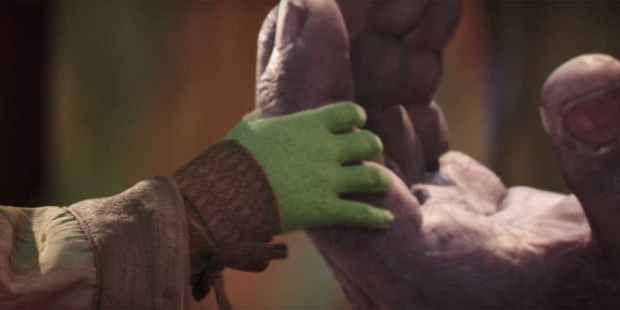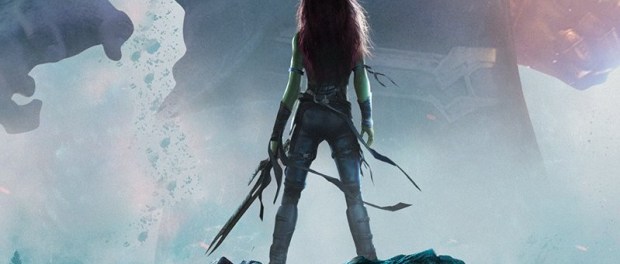Humanizing Harm: The Dangerous Way Marvel Gets It Wrong
In any good story, readers, viewers, what have you, are provided with a cast of relatable protagonists that they can fall in love with and root for in earnest. In a great story, the author will find a way to forge this same level of attachment to their villain. Sometimes this means making them as over the top and exciting as possible, so that their many flaws and misdeeds are entertaining enough to want more of their brand of turmoil and torture.
As is more often the case, this can also be accomplished by humanizing the villain, granting them inverse but valid motivations to the story’s heroes, and portraying them as no less human for the dark paths they walk. This latter device is what writers opted for in Marvel’s latest powerhouse, Avengers :Infinity Wars, as they did their damnedest to paint big-bad Thanos as something other than a genocidal storm-cloud of doom. Tragically, but for viewers rather than the character himself, the methods by which creators made this attempt managed to be both toxic and potentially dangerous.
Beware dear readers, for here there be spoilers and potential triggers.

While the Avengers and their allies scramble to gear up and reassemble against the looming threat Thanos’s conquest to possess and wield all six infinity stones poses, the plot of the film takes turns at giving the monster a motivation not steeped in cartoonish posturing of the average comic book evil doer.
Here, Thanos is not just an intergalactic version of real and fictional conquerors, he is a being on a dire mission that only he has logic and cool rationality to execute. To the very limited credit of the writers, this kind of backstory is textbook character development. In many ways, a properly developed villain’s motivations should have almost identical to those of the heroes, with the crux of their conflict lying in the opposing ways they strive to uphold or defend their ideals and desires, be they love, power, or a warped sense of justice. Where a hero will work to earn and be worthy of their desires, all the while defending an often strict set of ethics, a villain feels owed their wants and goals, and has crafted a code of conduct that generally ignores the freedom, agency, and lives of society at large. Problems arise when authors try to justify or even defend these negative behaviors and actions by creating a false equivalency between heroic values and the twisted interpretations of an antagonist.

Infinity Wars sees Thanos at the edge of achieving his ultimate goal: a universal genocide that he argues will restore balance to a galaxy crumbling under the weight of overpopulation and dwindling resources. He has seen the devastation of these dual entities first hand, and he will do everything in his power to prevent others from facing the fate of his own home world after his warnings fell on deaf ears. By this rationale, he determines half of the existing population must be disposed of indiscriminately. In his quest to see this massive and misguided undertaking accomplished, the man has personally seen to the destruction of millions of lives, and along the way amassed a squadron cultivated from the orphans of this decimation, molded through harsh training and torture to execute his whims at any cost.
The damage that has brought Thanos to this level of rationalized atrocity isn’t hard to parse; the land and people he came from have been erased by what he has deemed to be woefully preventable and it has driven him to calculated madness. That said, his melancholic origins by no means excuse his behavior, nor do any thin vestiges of emotion lessen the caliber of his inhumanity, which is why it is so deeply disturbing that the film seeks to do just that. Even worse, it endeavors to hearten us to him by romanticizing his relationship with one of his most prominent victims: Gamora.
Gamora’s history with her captor stepfather is one of abuse, subjugation and forced servitude that she has only recently freed herself from and still struggles with in the present day. Her sense of self and self-worth bear the battle scars of a woman who earned her strength through brutal survival and whose only familial ties before uniting with the Guardians of the Galaxy lie with fellow victims and her victimizer. Throughout the entirety of the Guardians films, Gamora has been framed as a character struggling to find where her place lies in a world she once was forced to terrify and devastate by order of an oversized psychopath. Nowhere in this narrative have there been any viable inferences or subtext of love between Gamora and the patriarch of her forced-clan, and rightfully so. To imply love in an abusive relationship on the part of the abuser, let alone outright state it would be an irresponsible move in any story. Yet, by the climax of the film, Infinity Wars does just that, framing Gamora as the only thing Thanos has ever loved and therefore the thing he must sacrifice to retrieve his gauntlet’s soul stone, positioning his brand of kidnapping and militaristic grooming as actual affection that leaves him in agony when the time comes to lay it before his goals in offering. Setting aside the notion that Gamora herself deserves better, the audience by no means deserves this kind of perversion.

Disney properties are no stranger to bad guys with a soul, and have a quite recently put forth successful flavors of them across multiple franchises. In box-office smash Black Panther, Erik Killmonger was a child robbed of home and heritage by a country that banished him to cover its own negligence and misdeeds. As a result of his trauma, he became the kind of violent colonizer his people actively rebuke. In an inversion of this trope, Star Wars demonstrated that while initially presented as an extreme reaction of betrayal, Kylo Ren’s acts of depravity were in fact symptoms of narcissism and selfishness. In either case, their humanity was sympathetic without serving as justification for the damage they inflicted, and at no point were their warped understandings of concepts such as stability, power, or family represented as equivalent to the actions and feelings that actually define those ideals. By that same standard, neither characters’ toxic relationships, with a disposable girlfriend and a warmongering mentor respectively, are represented as anything remotely romantic or nurturing. But Infinity Wars depicts Thanos as a bereft father, as opposed to a man who has sacrificed his victim on the altar of his murderous intentions.
In an age of movements like #metoo, where victims are battling to be heard against abusers who have shielded themselves behind walls of power, mentorship and sometimes even fatherly attention, the last thing any form of media needs to do is cloak its demons in any manner of wholesome values they do not embody. Is Thanos tortured? Yes. Did a fondness for one of his most notable captives take root somehow during the decades he spent manipulating and tormenting her? Perhaps. But a relatable character who experiences true care and legitimate emotional attachment he is not. Thanos is a monster and while it is admirable to provide audiences with the reasoning behind his evil, it is a malicious thing to engender heart within harm. The road to liberation and recovery from abuse is already a fraught and treacherous road, the Marvel Cinematic Universe does not need to aid in bolstering any of its massive stumbling blocks.

Featured Image Credit: Kode A.


Reblogged this on The Adventures of Fort Gaskin-Burr.
LikeLike